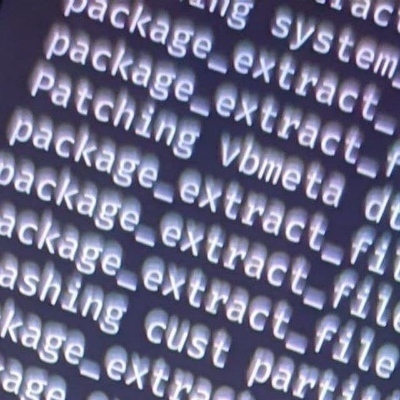Bullshit DMCA abuse
How is the accused project designed to circumvent your technological protection measures?
The identified Bypass Paywalls technology circumvents NM/A’s members’ paywalls in one of two ways. [private]
For hard paywalls, it is our understanding that the identified Bypass Paywalls technology automatically scans web archives for a crawled version of the protected content and displays that content.
If the web archives have the content, then a user could just search them manually. The extension isn’t logging users in and bypassing your login process; it’s just running a web search for them.
Dunno. Regardless of the method used by the extension, I think any extension called “Bypass Paywalls” that does what it says on the tin can pretty unambiguously be said to be designed to circumvent “technological protection measures”. In this case, it circumvents the need to login entirely and obviously it circumvents the paywall.
Though as you said, these guys should probably be sending DMCAs to the Internet Archive if they actually want to stop their paywalls from being bypassed. I know they do honor takedown requests. Maybe archive.today is the problem? Maybe they don’t honor DMCA requests. I very often see them used on Hacker News whenever someone wants share a paywall-free link to an article.
Dunno, I think regardless of the method used by the extension, I think any extension called “Bypass Paywalls” that does what it says on the tin can pretty unambiguously be said to be designed to circumvent “technological protection measures”.
“Bypass” and “Circumvent” are nearly synonymous in some uses - they both mean “avoid” - but that’s not really the point.
From a legal perspective, it’s pretty clear no circumvention of technological protection measures is taking place*. Yes, bypassing or circumventing a paywall to get to the content on the site itself would be illegal, were that content effectively protected by a technological measure. But they’re not doing that. Rather, a circumvention of the entire site is occurring, which is completely legal (an obvious exception would be if they were hosting infringing content themselves or something along those lines, but we’re talking about the Internet Archive here).
* - to be clear, I’m referring to what was detailed in the request, not the part that was redacted. That part may qualify as a circumvention.
In this case, it circumvents the need to login entirely and obviously it circumvents the paywall.
Following the same logic, Steam could claim that a browser extension showing where you can get the same game for cheaper or free circumvents their technological protection measure. It doesn’t. It circumvents the entire storefront, which is not illegal.
That’s the same thing that’s happening here - linking to the same work that’s legally hosted elsewhere.
Though as you said, these guys should probably be sending DMCAs to the Internet Archive
Yes - if they don’t want their content available, that’s what they should do. They might not want to do that, because they appreciate the Internet Archive’s mission (I wonder if it’s possible to ask that content be taken down until X date, or for content to be made inaccessible but for it to still be archived?) or they might be taking a multi pronged approach.
Maybe archive.today is the problem? Maybe they don’t honor DMCA requests.
Good point. If so, and if their site isn’t legally compliant in the same ways, then the extension becomes a lot less legally defensible if it’s linking there. That’s still not because it’s circumventing a technological protection, though - it’s because of precedent that “One who distributes a device with the object of promoting its use to infringe copyright, as shown by clear expression or other affirmative steps taken to foster infringement, going beyond mere distribution with knowledge of third-party action, is liable for the resulting acts of infringement by third parties using the device, regardless of the device’s lawful uses,” (Source), where “device” includes software. Following that precedent, plaintiffs could claim that the extension promoted its use to infringe copyright based off the extension’s name and that it had knowledge of third-party action because it linked directly to sites known to infringe copyright.
The Digital Media Law Project points out that there are two ways sharing links can violate the DMCA:
- Trafficking in anti-circumvention tools - which is obviously not what’s going on here
- Contributory copyright infringement - which is basically doing something described by the precedent I shared above.
I’m not sure how the extension searches web archives. It if uses Google, for example, then it would make sense to serve Google ae DMCA takedown notice (“stop serving results to the known infringing archive.piracy domain”), but if the extension directly searches the infringing web archive, then the extension developers would need to know that the archive is infringing. Serving them a DMCA takedown (“stop searching the known infringing archive.piracy domain”) would give them notice, and if they ignored it, it would then be appropriate to send the takedown directly to their host (Github, the browser extension stores, etc) citing that they had been informed of the infringement of a site they linked to and were de facto committing contributory infringement themselves.
Given that they didn’t do that, I can conclude one of the following:
- The lawyers are incompetent.
- The lawyers are competent and recognize that engaging in bad faith like this produces faster results; if this is contested they’ll follow up with something else, possibly even the very actions I described.
- The archives that are searched by the extension aren’t infringing and this was the best option the lawyers could come up with.
The Internet Archive has a special legal DMCA exemption that companies want removed because they want money. They have this exemption for a reason, but they shouldn’t have to have one in this day and age where kids get polio in Gaza in 2024. What kind of hell is this… My grandparents mess shouldn’t me mine.
Eligible libraries, archives, and museums have a few exemptions to the DMCA’s anti-circumvention clauses that aren’t available to ordinary citizens, but these aren’t unique to the Internet Archive. For example:
Literary works, excluding computer programs and compilations that were compiled specifically for text and data mining purposes, distributed electronically where:
(A) The circumvention is undertaken by a researcher affiliated with a nonprofit institution of higher education, or by a student or information technology staff member of the institution at the direction of such researcher, solely to deploy text and data mining techniques on a corpus of literary works for the purpose of scholarly research and teaching;
(B) The copy of each literary work is lawfully acquired and owned by the institution, or licensed to the institution without a time limitation on access;
© The person undertaking the circumvention views the contents of the literary works in the corpus solely for the purpose of verification of the research findings; and
(D) The institution uses effective security measures to prevent further dissemination or downloading of literary works in the corpus, and to limit access to only the persons identified in paragraph (b)(5)(i)(A) of this section or to researchers or to researchers affiliated with other institutions of higher education solely for purposes of collaboration or replication of the research.
This exemption doesn’t allow them to publish the content, though, nor would it provide them immunity to takedown requests, if it did.
These exemptions change every three years and previously granted exemptions have to be renewed. The next cycle begins in October and they started accepting comments on renewals + proposals for expanded or new exemptions in April, so that’s why we’re hearing about companies lobbying against them now.
What a truckload of bull.
Someone have a local clone? Post it to a different host.
Don’t know if it’s allowed to post links here. If anyone wants it, just ping me in my inbox. 😉
I was wondering if there will I got was legit for my fork.
Well I better back it up nowI guess I just keep what I already downloaded a few months ago and hope no major updates had happen lol






